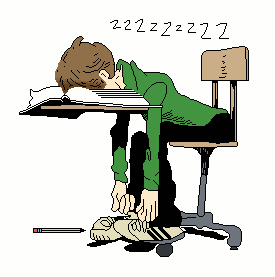
In 1996 a book came out suggesting a principle of why there are a lot of workplaces with incompetent workers. The book was called Peter’s Principle by Laurence J. Peter in correspondence with Raymond Hull. Peter’s theory was suggesting that every person has a point after which he is no longer competent in his job and that sooner or later any post tends to be occupied by the employee who is incompetent in accomplishing his duties. The level when the employee is no longer competent in his job is the level of incompetence after which one no longer rises in the career path. This level is also called final placement.
But the book did not only suggest this theory of hierarchy but also brought a list of symptoms that people have when they reach their level of incompetence. The author called them final placement syndromes. There are two categories: medical and non-medical. In medical syndromes are included such complaints as high blood pressure, diarrhea, alcoholism, overeating or loss of appetite, allergies, muscle spasms, insomnia, chronic fatigue, cardiovascular complaints, migraine headaches, dizziness, tinnitus and others. According to Peter these are ”typical ‘success’ complaints” and may occur without real organic disease rather than unconsciousness trying to find an excuse for not fulfilling job requirements.
While non-medical syndromes may include:
– papyrophobia, when one cannot tolerate papers and books on his desk;
– papyromania, the opposite, one clutters his desk with pile of papers, trying to mask his incompetence giving off the image of a person who has too much to do;
– fileophilia, when one has a mania of arranging and rearranging documents accomplishing nothing of importance.
Psychological syndromes are
–self-pity, that is usually combined with talks about ”good old days” when one was still in the lower rank at the level of competence;
– compulsive alternation, when reaching the level of incompetence one tries to keep his colleagues and subordinates off balance;
–teeter-totter syndrome, when an employee avoids problems until someone else makes a decision or until it is too late to do something;
–cachinatory inertia, a habit of telling jokes instead of getting through with the work;
– ticks and odd habits: drumming with fingers or tapping with pencils on desks; twiddling pens, cracking knuckles, the purposeless stretching and snapping of rubber bands, heavy sighing with no particular reason, staring into the middle distance for indefinite lengths of time.
In the process of reading the list of symptoms Peter gave, I began observing them among my friends at the university and noticed that I also do have some of them. So, I began wondering whether it is us, students, becoming incompetent or the abundance of homework has reached to its point of enough, when it no longer expands our knowledge but rather makes the quality of our work decrease.

Interesting observation, Anna… I wonder what your fellow students have to say about this? 🙂
LikeLike
Pingback: Expectations Mismatches & Moon Men | ADD . . . and-so-much-more